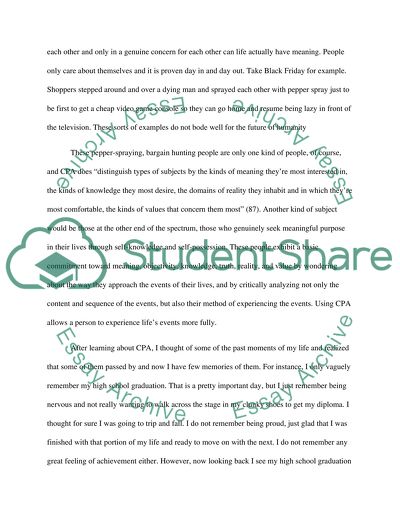Cite this document
(“Conscious Performance Analysis or CPA Essay Example | Topics and Well Written Essays - 3000 words”, n.d.)
Retrieved de https://studentshare.org/philosophy/1392875-conscious-performance-analysis-or-cpa
Retrieved de https://studentshare.org/philosophy/1392875-conscious-performance-analysis-or-cpa
(Conscious Performance Analysis or CPA Essay Example | Topics and Well Written Essays - 3000 Words)
https://studentshare.org/philosophy/1392875-conscious-performance-analysis-or-cpa.
https://studentshare.org/philosophy/1392875-conscious-performance-analysis-or-cpa.
“Conscious Performance Analysis or CPA Essay Example | Topics and Well Written Essays - 3000 Words”, n.d. https://studentshare.org/philosophy/1392875-conscious-performance-analysis-or-cpa.


